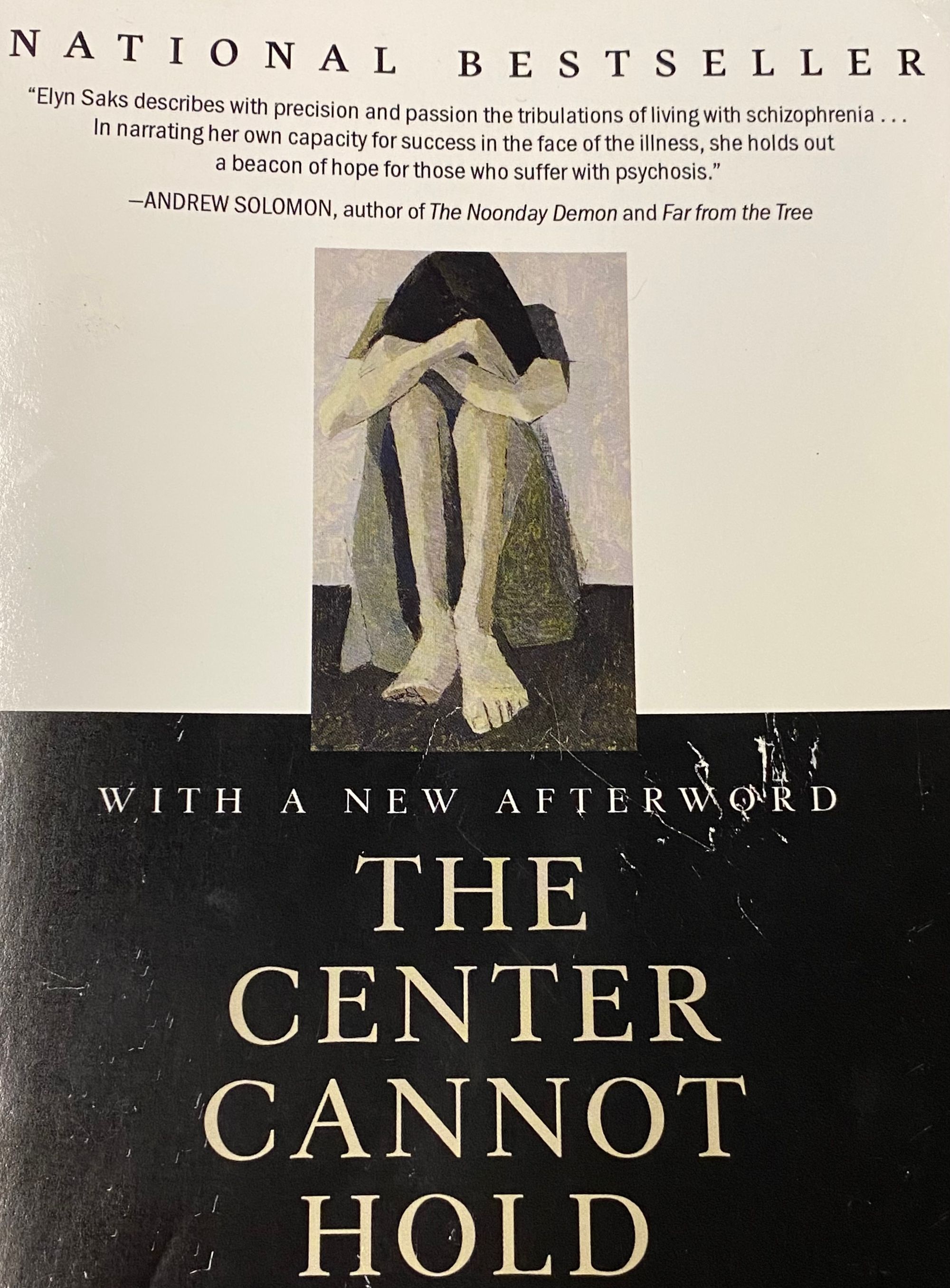The Center Cannot Hold - book review

What makes The Center Cannot Hold - My Journey Through Madness by professor Elyn R. Saks one of the most memorable books I have read is that it radically changed the way I understand psychosis and the experience of psychiatric illness more generally. By employing one of the most powerful tools for creating mutual understanding - vulnerability - Saks shares with the reader her inner thoughts throughout different stages of her illness and gives us a sense of what living with schizophrenia really looks like.
At the centre of this memoir is her personal story of the development of her mental illness and how she dealt with it while also working in very demanding and high-performance environments in her academic career. She gives us an insight into the different therapeutic strategies used for psychosis in the last two decades of the 20th century, including Kleinian psychotherapy and restraints with forced drug administration. Especially Kleinian analysis, an interpretation of Freudian by Melanie Klein, plays a central role in her journey. Despite great scepticism of the therapeutic benefits of this therapy for schizophrenia, she explains: ‘to me, psychoanalysis was the only treatment that made sense. […] Psychoanalytic treatment kept me out of the hospital while I actually completed my Oxford degree.’
Fundamentally, Kleinian analysis is not based on the notion that delusional thoughts need to be ignored and pushed down as much as possible, but rather on the belief that having these psychotic experiences could be rooted in a struggle with great anxiety - which deserves attention. Based on Kleinian theory, ‘the way to provide relief is to focus directly on the deepest sources of that anxiety’. Saks’ memoir presents a stark contrast to the image of schizophrenia that is so abundant throughout our media - that of danger and madness. Rather, if we were to truly experience a psychosis and struggle more and more with our cognitive abilities, we would likely feel extremely scared.
The title could therefore not have been picked better. The image of the loss of a centre, and all the effort that goes into trying to hold it together, is extremely powerful. It implies that the road to rehabilitation for psychosis has to make space for the eventual need of the centre to fall apart - as she was first allowed to do with her therapist Mrs. Jones, a Kleinian analyst: ‘For two straight years, I did my work, I met my obligations, made it through the day as best as I could, and then fled to Mrs. Jones, where I promptly took the chains off my mind and fell apart.’
